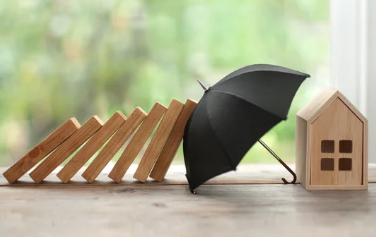Your home is likely the most valuable asset you’ll ever own, and protecting it is essential. Home insurance, also known as homeowner’s insurance, provides financial protection against unexpected events such as fire, theft, natural disasters, and liability claims. Understanding how home insurance works, what it covers, and how to choose the right policy ensures you can safeguard your investment and maintain peace of mind.
This guide explains home insurance coverage, benefits, common pitfalls, and tips for selecting the right policy.
Why Home Insurance Is Important
Home insurance protects both the physical structure of your home and your personal belongings. Without coverage, homeowners may face:
- Costly repairs or rebuilding after damage
- Financial losses due to theft or natural disasters
- Liability claims if someone is injured on your property
Tip: Even if you own your home outright, insurance is essential to protect your financial future.
What Home Insurance Typically Covers
Home insurance policies generally include several key components:
1. Dwelling Coverage
- Protects the physical structure of your home, including walls, roof, and built-in appliances, against covered perils such as fire, wind, hail, or vandalism.
- Covers repairs or reconstruction costs.
Tip: Ensure your dwelling coverage reflects the full replacement cost, not just market value, to avoid underinsurance.
2. Personal Property Coverage
- Covers your personal belongings, including furniture, electronics, clothing, and valuables, against damage or theft.
- Some policies provide additional protection for high-value items like jewelry or collectibles.
Tip: Keep an inventory of your possessions with photos and receipts to support potential claims.
3. Liability Protection
- Covers legal costs and damages if someone is injured on your property or if you accidentally cause damage to others’ property.
- Provides protection against lawsuits and medical expenses.
Tip: Higher liability limits may be necessary if you have frequent visitors or valuable assets to protect.
4. Additional Living Expenses (ALE)
- Pays for temporary housing, meals, and other living costs if your home becomes uninhabitable due to a covered event.
- Ensures you can maintain your lifestyle while repairs are made.
Tip: Confirm ALE limits to cover potential displacement costs adequately.
Optional Coverages and Endorsements
Depending on your location and personal needs, you may consider adding optional coverage:
- Flood Insurance: Usually not included in standard policies; essential in flood-prone areas.
- Earthquake Insurance: Protects against seismic damage, often excluded from standard policies.
- Sewer Backup Coverage: Covers damage from clogged or backed-up sewage lines.
- Umbrella Policy: Provides extra liability coverage beyond your home and auto insurance limits.
Tip: Evaluate your geographic risks and lifestyle to choose the right endorsements.
Factors That Affect Home Insurance Premiums
Several factors influence the cost of your home insurance:
- Home value and replacement cost
- Location and susceptibility to natural disasters
- Age and condition of the home
- Security features like alarms, deadbolts, and sprinkler systems
- Claims history and credit score of the homeowner
Tip: Implementing safety measures and choosing appropriate coverage levels can help lower premiums.
Tips for Choosing the Right Home Insurance Policy
- Compare Multiple Providers: Evaluate coverage options, limits, and customer service.
- Review Policy Details: Understand what is covered and what is excluded.
- Set Adequate Limits: Ensure dwelling and personal property coverage reflect replacement costs.
- Consider Deductibles: Higher deductibles reduce premiums but increase out-of-pocket costs during claims.
- Bundle Policies: Combining home and auto insurance often qualifies for discounts.
- Update Your Policy Regularly: Reassess coverage after renovations, major purchases, or changes in home value.
Common Home Insurance Myths
- Myth 1: Home insurance covers all types of natural disasters.
- Reality: Standard policies often exclude floods and earthquakes.
- Myth 2: Home insurance is unnecessary if you have a mortgage.
- Reality: Lenders require insurance, but it also protects your personal investment.
- Myth 3: Personal belongings are fully covered automatically.
- Reality: Some items have coverage limits; additional endorsements may be needed.
Conclusion
Home insurance is essential for protecting your most significant financial investment. It provides coverage for your home, belongings, liability, and living expenses in the event of unexpected events. By understanding your policy, evaluating risks, and selecting appropriate coverage, you can safeguard your property and ensure peace of mind.
Key takeaway: Home insurance is not just a legal or financial requirement—it’s a vital tool to protect your home, your family, and your future.






